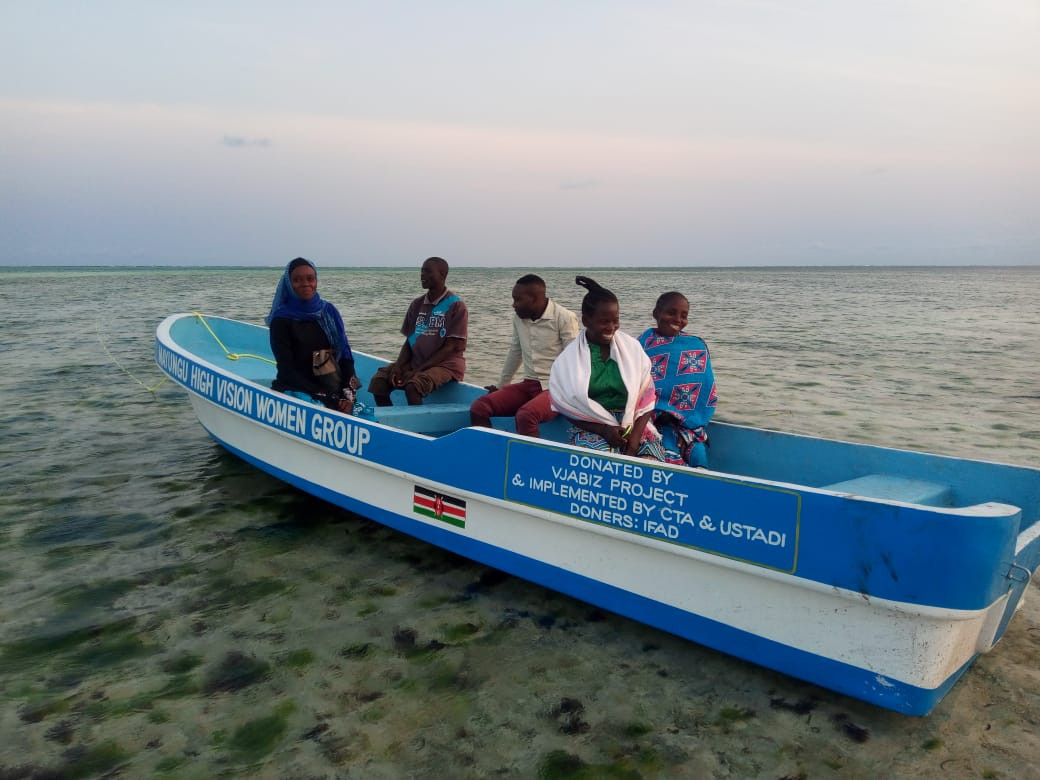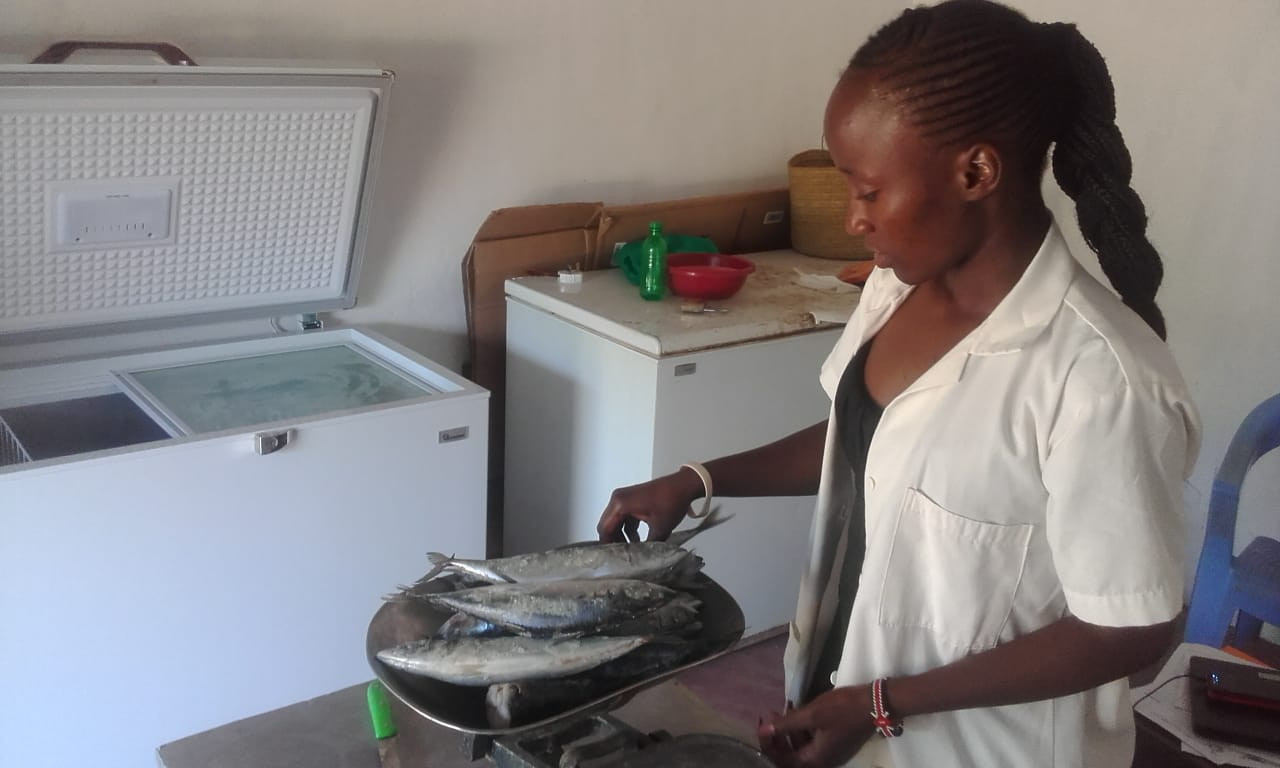The shop painted blue and white at Kitiwetanga trading centre in Watamu, Kilifi County, stands out, not only because of its beautiful colours but also activities it hosts.
The shop is run by Mayungu High Vision Women Group, which engages in sea food trade, buying the produce and selling at their premises.
“We are 12 members, having formed the group in 2017 and is fully registered by the department of social services,” Rajab Latifa, the chairperson, tells Mkulima Young.
Latifa recalls that before joining hands, each of the group members were working separately. They would visit the ocean, buy the fish and sell.
“Some would add value by frying the produce before selling. But it reached a time when we figured out that by working separately, we would not go far. We agreed to combine our activities so that some of us would sell raw produce and others fried but in bulk,” says Latifa.
The group currently deals in various sea foods that include tuna, white and red snapper fish, dorado and octopus, among others.
“We buy and sell between 80-100kg of the sea food products every day, both value-added and raw. We sell wholesale and retail,” says Latifa.
But before selling the products, they first wash them thoroughly to ensure they are clean and then remove the scales, explains Latifa, adding each kilo goes for Sh300.
“We market the products through word of mouth, on Facebook and WhatsApp groups and on online marketplace Mkulima Young.”
Their target customers are schools, cafés, fish mongers, individuals and households in the area as fish and other sea foods are a delicacy.
To boost their efficiency, the group was trained by Ustadi Foundation on various management aspects, information and communication technology, business entrepreneurship and recordkeeping under the Vijabiz project.
“We are now able to keep our records daily on purchases, sales and we market our products knowing who to target,” says Mishi Bora, the secretary.
Bora notes that after the training, they were offered financial support that has enabled them buy a fishing boat, generator, freezer and digital weighing scale for efficiency.
“With all these gadgets and our improved efficiency, our business can only soar. We are now able to get steady income,” she says.
And thanks to improved efficiency, the group that was only selling some 20kg of fish products daily now hits 100kg, says Latifa.
But it is not all rosy, observes Mishi, competition is tough especially when it comes to getting produce to sell since there are other players in the market.
Noel Kasololo, a project officer with Ustadi Foundation says that in the years to come, he sees the group opening its own company due to the determination of members.


